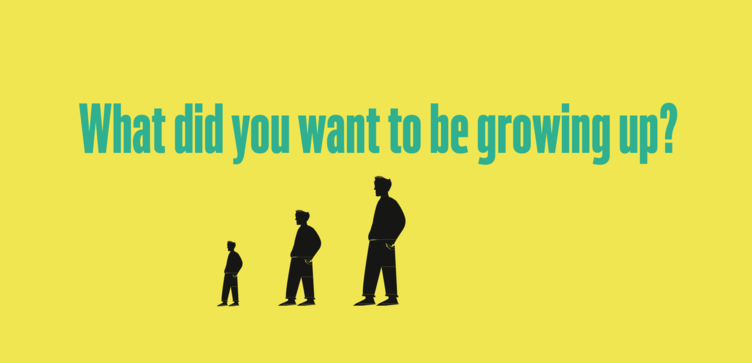I am fascinated by ambition. A weird interest I know, but then so is trainspotting, cheesemaking and anything to do with astrology. I have therefore spent the last few years reflecting on the subject and sharing my unsolicited thoughts. And now it has inspired me to write a novel about the nature of ambition, ironic given that writing a book has always been my biggest ambition. It is the tale of an imaginary start-up and the impact of accidental success on its founders. I was doing very well publicising it but then sadly the Duke of Edinburgh passed away, so I am no longer trending. Therefore, I thought I’d use this PR hiatus to explain why understanding ambition is important.
A world-in-flux and post-pandemic introspection makes this a perfect time for such reflection. Emerging from the unexpected experience of lockdown, our future outlook is inevitably impacted. But it is from the lessons of our cultural history that we should turn first for context when evaluating the importance of an “ardent desire for rank, fame power and desire to achieve a particular end.” (Webster’s Dictionary)
The evolution of ambition has always been underpinned by a philosophical health-warning, beginning with ‘The Fall of Man,’ which was basically a giant prohibition against over-reaching yourself. Eve, unhappy with a verdant Paradise persuaded Adam to want more and it did not turn out well as their eternal joy was lost because of an apple promising wisdom and enlightenment. You can’t trust a walking serpent making over-claims for a piece of fruit.
‘The Book of Genesis’ thereafter is an ongoing warning against wanting more. There is the story of the ‘Tower of Babel’ when the descendants of Noah decided to “build a city with a tower with its top in the heavens to make a name for ourselves lest we be dispersed across the whole earth.” Unfortunately, the Lord did not take kindly to the elevation of Man’s ambition and interceded by making everyone speak different languages thereby unable to understand one another. The result was a chaos you now only see watching Brits abroad trying to order in a restaurant and ‘The Tower of Babel’ to this day is still not fully let.
A few chapters later Isaac’s twins Esau and Jacob were born. The latter followed his brother out of the womb “with his hand grasping the heel of Esau” to pull him back because he was desperate to be the first born. This metaphorical depiction of opportunism is a display of innate ambition and was re-affirmed years later, when Jacob persuaded his mother to help trick his brother Esau out of his rightful inheritance. Wanting more was clearly hereditary, as his own son Joseph kept dreaming of a higher station in life to his eleven brothers, eventually overcoming their attempts to kill him for his multicoloured coat and ruling over them. (Surely, you’ve seen the musical?)
The major religions take these stories to create slightly different perspectives on the iniquities of wanting too much. The Church was built on the notion of Original Sin and warned that elevating aspiration above your natural station in life was fraught with danger. The Sixteenth Century Geneva Bible for example, mentions the word ‘ambition’ seventy-six times, all in a negative context. Indeed, in this translation, Adam was not felled by pride but ‘fallen by ambition’ . The sentiment derived from a fear of Reformation teaching that questioned the limitations of man’s ability to change accepted teaching.
Judaism and Islam share a foundation in scholarship based on the desire for greater understanding of the nature of divinity, and encourage a thirst for betterment. In Hebrew, the word for ambition is ‘Sheifya’ which means both ambition, aspiration and striving but also inhalation and breathing, which at first glance is a very different thing. Here’s an interpretation.
We are impelled to learn and move forward by study in order the help lead good lives with our families and communities. And of course, to exist, you have to breathe. The oxygen in our lungs is the life-force that allows us to remain restless in an individual quest to be a wiser person each day. Islam is equally a journey for spirituality and continual self-improvement, clearly contextualized within the laws of Sharia. (“If the Final Hour comes while you have a palm-cutting in your hands and it’s is possible to plant it before the Hour comes you should plant it” – Book 27 Hadith 479)
Other civilisations saw ambition in more secular terms. The Ancient Greeks struggled to find a single word to describe the concept and despite the clear aspirations of Alexander the Great for world domination, the quest for personal growth was hard for them to define. Instead, the three Greek words that have been translated into the English word ambition are philotimia, literally the ‘love of honour’, eritheia, ‘rivalry’ and philodoxia ‘love of acclaim’. In other words, to seek glory, you need to be prepared to fight.
The Romans saw ambition in more calculating terms. The Latin word ‘ambitio’ derives from the compound ‘ambire’, to ‘go round’. It is partly rooted in the concept of canvassing – currying favour on behalf of a candidate for advancement. Perhaps, more apt in describing political career building, but nonetheless suggestive of a need for the odd raised dagger to get rid of those troublesome rivals.
Well, these etymologies may be an impressive testament to Wikipedia, my A Level History notes and vague recollections of childhood religious instruction, but how are they relevant to our current global predicament of pandemic recovery?
Yale professor, William Casey King in his excellent book ‘Ambition, a History- from Vice to Virtue’ declared that perhaps “ what was once a sin is now a sin to lack.” So are we still restless to learn more or do we just want to have a good time? Do we covet the kudos of success? Do we enjoy the conflict and battle for its attainment? What will you do to by-pass the opposition in your quest for professional gain? And why has the paragraph got so many questions?
What these ancient observations demonstrate is the inherent conflict of ambition and the need in certain circumstances for its prohibition and in others, its active encouragement. Wanting too much can be an arrogant affront to the sovereignty of the Almighty but striving to become a better person through a devotion to self-betterment is often a divine pursuit.
Ambition has therefore become a word of ambiguity whose true meaning is shaped by the individual. For some, it codifies the restlessness for something better. To others, it is obsolete in a world in which we should strive to marry social purpose to our professional endeavours.
Ambition is simply the natural expression of our collective search for more meaning in our lives and the active desire to move forward, take control and live an evolving or better existence. A basic articulation of self-improvement, it is therefore not a quest for honour, glory and material gain, but a set of behaviours:
Do you want to earn more? Do you want more power? Do you want to do live with more purpose or just learn new things? Do you want to have more new experiences? Hopefully you are asking yourself some of these questions after having spent a year sharing an overburdened wifi with your irritating family and learning to bake. Now is the time to formulate a reasonable plan, recognise your evolving ambition without fearing its possibilities.
Me, I have dreamt about selling lots of books. ‘The Curious Rise of Alex Lazarus’ is out on May 6th. Pre-order on Amazon and help me realise my ambitions as I have given up on being taller, better looking and captaining England at cricket.



